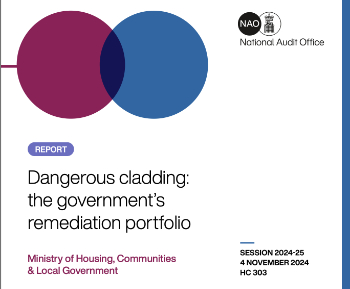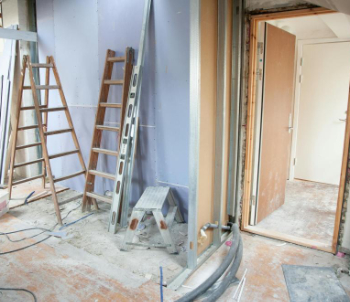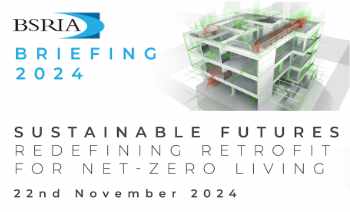The Construction Playbook 1.0 2020
Note: The Construction Playbook was updated in 2022. See: The Construction Playbook 1.1 2022.
Contents |
[edit] Update
An update of the The Construction Playbook was published in September 2022, for more information visit The Construction Playbook 2022 edition.
[edit] Introduction
The Construction Playbook, published on 8 December 2020, sets out plans for how the Government will work with the construction sector to ensure public sector works are delivered faster, better and greener.
The document outlines how the Government will strengthen the financial assessment of all the suppliers it works with to make sure projects are delivered on time and to budget. It also looks to improve productivity and innovation in the sector.
The Construction Playbook is based on discussions between the Government and the construction sector. As a result of this collaborative process, measures in the Playbook have been backed by construction firms and business associations from across the industry.
[edit] Plans for public works
In 2018, construction contributed some £117 billion to the UK economy, as well as supporting over two million jobs. The Construction Playbook indicates what the Government expects from these public projects - ranging from new roads and railway lines to schools, hospitals and prisons.
The Playbook also outlines the key role the construction sector will play in both the UK’s recovery from the COVID-19 pandemic and the country's efforts to bring greenhouse gas emissions down to net zero by 2050. Green initiatives in the Playbook include promoting the use of carbon assessments to understand and minimise the greenhouse emissions of projects.
[edit] Additional guidance
Other specific measures include:
- Providing greater certainty to industry through long-term plans for key programmes. This will include longer term contracting across a range of areas which will give industry the certainty required to invest in new technologies, delivering improved productivity and efficiency savings.
- Encouraging industry to innovate by focusing on the output of project achievements, rather than by micromanaging how it is accomplished.
- Modernising construction by standardising designs and parts, as well as embedding digital technologies including the UK Building Information Management Framework.
- Placing greater focus on developing positive relationships with robust contract management between project leads and industry.
- Investing more in training and apprenticeships, driving forward innovation in construction, boosting productivity and focussing on value for money in public sector developments.
Learning lessons from the Grenfell Tower fire, the Construction Playbook also makes it clear that the construction sector must put safety at the heart of everything it does.
[edit] Initial reactions
Cabinet Office Minister Lord Agnew, said:
'As the largest construction sector customer, the Government is in an ideal position to ensure that the industry is productive, professional and delivers value for money for taxpayers. By adopting the new Construction Playbook, developed with industry partners, we will help ensure that the sector becomes greener and more innovative.'
Andy Mitchell, the CEO of Tideway and Co-Chair of Construction Leadership Council:
'The Government can influence the whole direction that our sector takes with the way it buys new public buildings and infrastructure.
'The Construction Leadership Council is delighted that the Government is showing real leadership in this regard. The Construction Playbook commits us all to drive positive change with better, long-term relationships and more efficient ways of working. The CLC will give its support to engage the industry to play its part in embedding the Playbook recommendations across our sector.'
[edit] Related articles on Designing Buildings
- Consultancy playbook.
- Coronavirus and the construction industry.
- Covid-19 and the new normal for infrastructure systems - next steps.
- Government Skills and Curriculum Unit GSCU.
- Independent review of construction frameworks.
- Management Consultancy Framework MCF.
- National Retrofit Strategy NRS.
- Pre-qualification standard 2021.
- Procurement Policy Note 12/15.
- Procurement policy note PPN.
- Public project: construction.
- Sourcing playbook.
- Standardisation in the construction industry.
- The Construction Playbook 1.1 2022.
[edit] External resources
- Gov.uk, The Construction Playbook.
Featured articles and news
Cladding remediation programmes, transparency and target date.
National Audit Office issue report on cladding remediation.
HBPT and BEAMS Jubilees. Book review.
Does the first Labour budget deliver for the built environment?
What does the UK Budget mean for electrical contractors?
Mixed response as business pays, are there silver linings?
A brownfield housing boost for Liverpool
A 56 million investment from Homes England now approved.
Fostering a future-ready workforce through collaboration
Collaborative Futures: Competence, Capability and Capacity, published and available for download.
Considerate Constructors Scheme acquires Building A Safer Future
Acquisition defines a new era for safety in construction.
AT Awards evening 2024; the winners and finalists
Recognising professionals with outstanding achievements.
Reactions to the Autumn Budget announcement
And key elements of the quoted budget to rebuild Britain.
Chancellor of the Exchequer delivers Budget
Repairing, fixing, rebuilding, protecting and strengthening.
Expectation management in building design
Interest, management, occupant satisfaction and the performance gap.
Connecting conservation research and practice with IHBC
State of the art heritage research & practice and guidance.
Innovative Silica Safety Toolkit
Receives funding boost in memory of construction visionary.
Gentle density and the current context of planning changes
How should designers deliver it now as it appears in NPPF.
Sustainable Futures. Redefining Retrofit for Net Zero Living
More speakers confirmed for BSRIA Briefing 2024.
Making the most of urban land: Brownfield Passports
Policy paper in brief with industry responses welcomed.
The boundaries and networks of the Magonsæte.

























